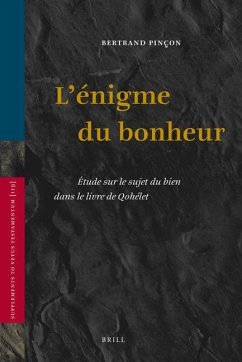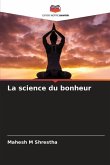This study deals with the question of happiness in the book of Qoheleth, starting with the contemporary debate among modern writers concerning the status of various encouraging statements that emerge out of a general context in which a oeall is vanitya . The first part of this study describes the current position of research, examining the debated questions. The second part proposes an exegetical and contextual inquiry of the words for happiness, drawn up by these authors. The third part suggests a way of resolving the enigma of happiness, based upon an additional formula of happiness, located at the beginning of the second half of the book. Gradually, a conviction takes shape: happiness does not have the same status in the two parts of the book. If, at first, happiness is presented as the only alternative given by God to help man to hold on when faced with the fleetingness of things in life, it later becomes an art of living, apt to be taught to future generations.
Bitte wählen Sie Ihr Anliegen aus.
Rechnungen
Retourenschein anfordern
Bestellstatus
Storno


